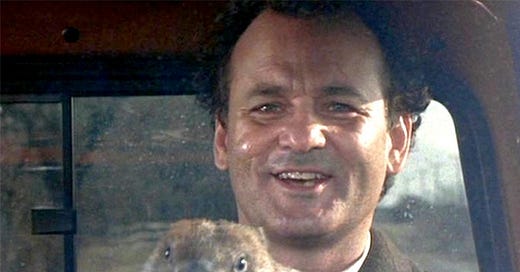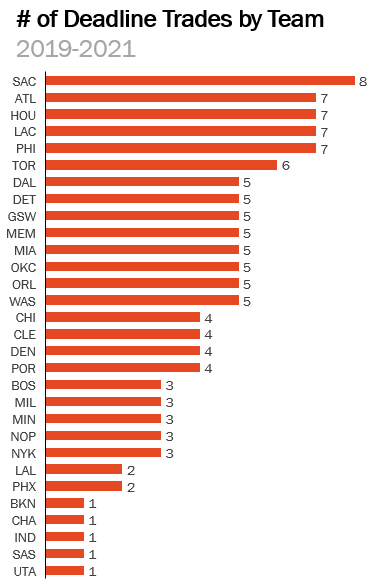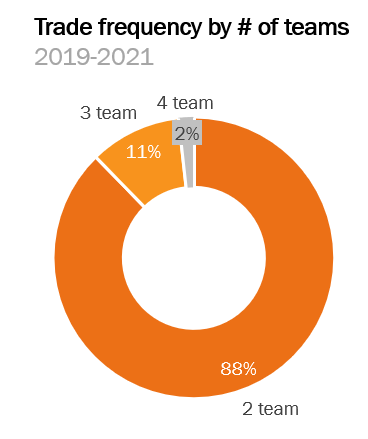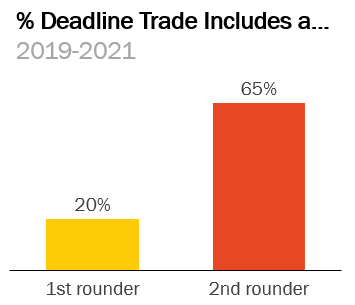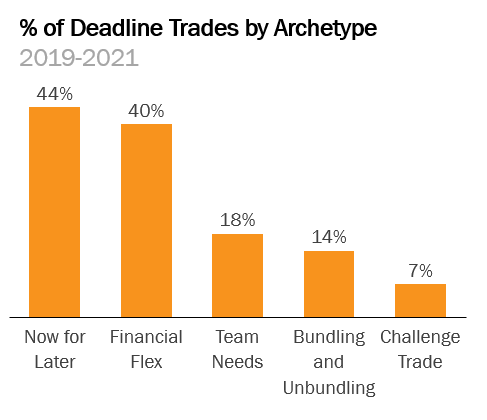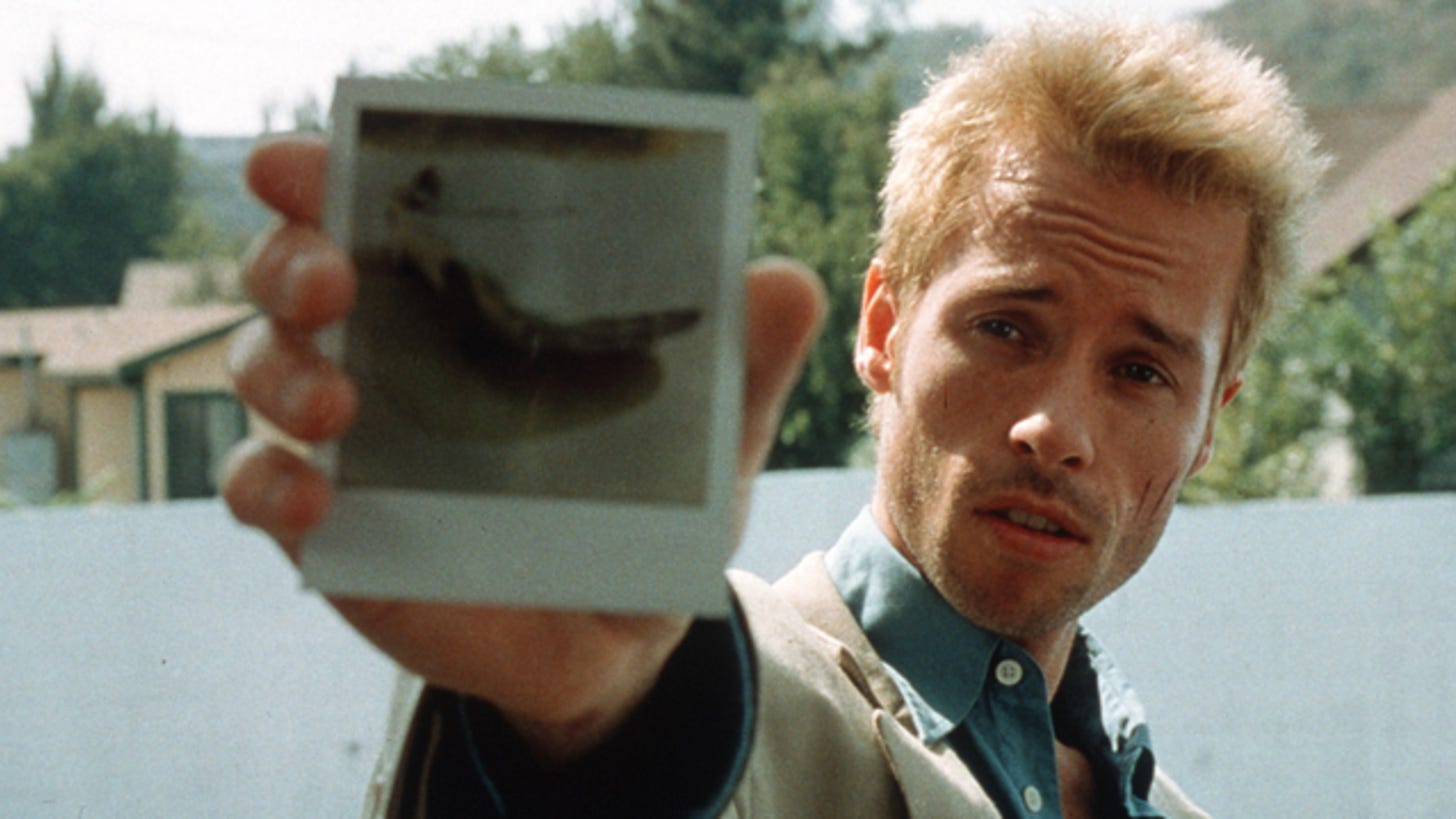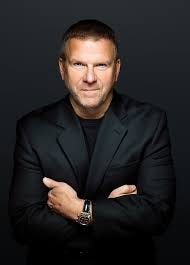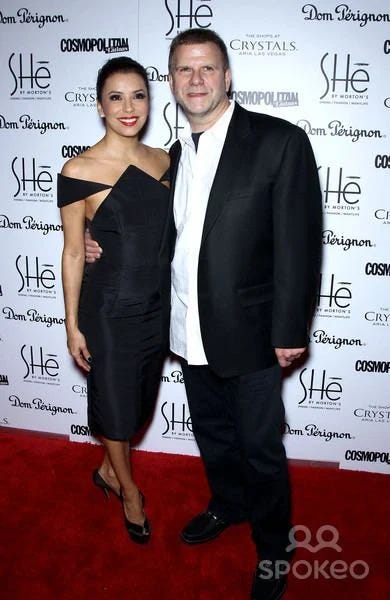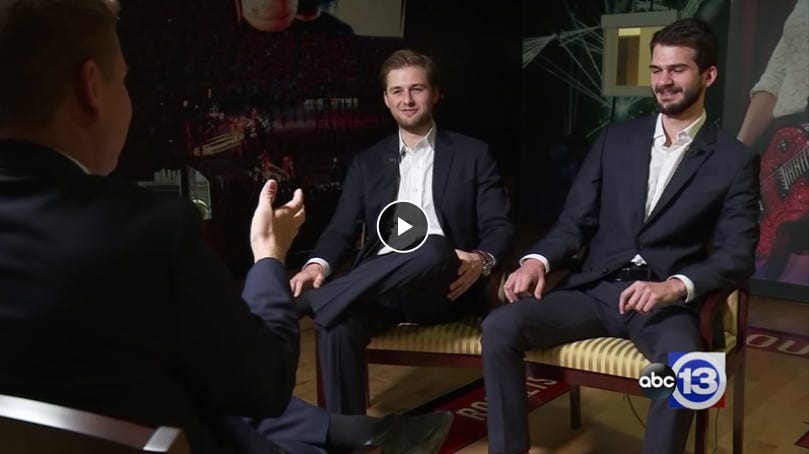⏱Countdown to the Trade Deadline
Charts! Graphs! We go deep on what to expect. Plus, get to know everyone's favorite restaurant magnate/NBA owner, and more.
OPENING TIP
Early February each year we observe a familiar ritual, known for both its heralding of the coming spring as well as for its repetitive patterns. Of course, we’re referring to the NBA trade deadline.
We’re less than five weeks out and judging by the reporting coming from top NBA reporters, we can expect some movement soon. While it seems unlikely that a star gets traded, we can expect plenty of role players like Jerami Grant, Christian Wood, or Ben Simmons (heh) to be grist for the rumor mill.
Last year, we examined the landscape of trades and assigned them to five broad archetypes:
Bundling and Unbundling - swapping four quarters for a dollar
Now for Later - teams with different time horizons trading, usually including draft picks
Different Player Evaluations - also known as the challenge trade, the rare “like for like” swap where two teams bet they can get more out of the other player than their counterpart
Financial Flexibility - the boring-but-common tweaking around the salary cap edges that teams do every year
Different Team Needs - trading excess brick for badly needed wheat, in Settlers of Catan parlance
That’s fine, but which ones are more likely? And what else should we expect come early February? We went to the tape, and analyzed the 57 trades that have taken place within two weeks of the last three trade deadlines. The results are illuminating. (All transaction data in the following is taken from Basketball Reference.)
There have been 19 trades a year on average during “deadline season,” with 72% of those taking place on the deadline itself. Since every trade has two counterparties, this means on average every team completes a trade every season. But some teams are more than others! The Kangz lead the way with 8 trades over the past three deadlines, while the Pacers, Hornets, Spurs and Jazz have only made 1 each.
Most trade are simple two-team trades, but 13% involve 3 or more teams, implying we should see at least 2 such trades this year. We’re rooting for a four-teamer like the one that brought Clint Capela to Atlanta and Robert Covington to Portland.
Draft picks are a very frequent trade currency, serving to lubricate the gears of the league by balancing out uneven trades. On average, 6 first round picks and 18 second rounders change hands every season (although 2 of those second rounders are “top-55 protected,” e.g. never intended to convey ). 20% of all trades include a first round pick and 65% include a second rounder.
But what about our trade archetypes? Glad you asked! Many trades had more than one archetype, but the two most common are “Now for later” and “Financial flexibility,” collectively representing 48 out of 57 trades in the sample.
Financial flexibility trades tend to be pretty boring: anyone remember this thriller?
February 7, 20219
The Houston Rockets traded Wade Baldwin, Maarty Leunen, Nik Stauskas and a 2021 2nd round draft pick (Sandro Mamukelashvili was later selected) to the Indiana Pacers for cash.
The number of impact players that move is pretty limited. Over the past three deadlines, we identify twelve such players who changed hands, of whom two were injured at the time of the trade and didn’t play again that season.
In the end, for all the sturm und drang of the deadline coverage, teams are mostly tweaking around the edges. Sixers fans are hoping to see Ben Simmons dealt for Dame Lillard; Ben and Dame will probably stay put. Celtics fans want a third star to join their two elite wings; they’re more likely to see Dennis Schroder dumped to avoid the luxury tax. These are not the dopamine hits we’re looking for when we turn on our Twitter notifications for Woj and Shams! Fortunately, NBA fans are like Leonard of Nolan’s Memento: unable to form new memories, and thus condemned to repeat past disappointments over and over again.
TWEET OF THE WEEK
As fans of a good 2x2 matrix, we appreciated this Sportico chart. Investing in the Spurs, Thunder and Grizzlies seems like good value.

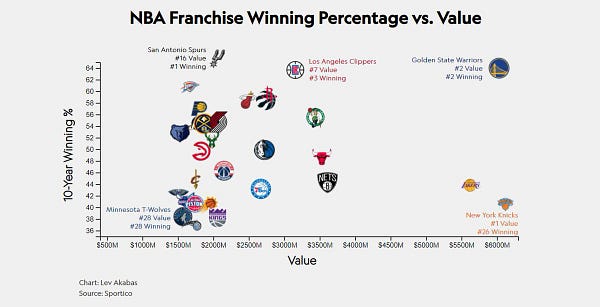
BETTER KNOW A RICH PERSON: TILMAN FERTITTA
At STL, we have noted in the past that just as old people start to look like their dogs, NBA franchises over time come to resemble their owners. Today, we take a visit to the Lone Star State and one of the newest owners in the NBA, Tilman Fertitta.
Unlike some owners, Fertitta’s life is an open book. He produces a show about himself that has run for several seasons on CNBC called 'Billion Dollar Buyer.' He has written a book about himself called Shut Up and Listen! Hard Business Truths That Will Help You Succeed. You can also turn to tilmanfertitta.com; the About page is entitled "Tilman Fertitta, Innovative Visionary.” Nice.
WHO: Tilman Fertitta. Owner of the Houston Rockets. 64 years old.
ABSURDLY RICH, HILARIOUSLY RICH, OR OBSCENELY RICH? Absurdly. According to Forbes, Tilman is worth $5.3 billion, but we’re not sure on that math, and it has been touch and go recently. He’s not particularly liquid, reportedly having “only” $300M in cash when he bought the team, and subsequently needing to inject $50M of equity into his business to prevent it from defaulting during the peak of COVID.
HOW DID HE GET THAT WAY? Fish, to start with. Fertitta is sometimes referred to as “the world’s richest restauranteur.” He has purchased and expanded a number of restaurant chains, starting with Landry’s Seafood. Since, he has acquired numerous restaurants, hotels, and casinos, notably the Golden Nugget Casino and Morton’s steakhouse. Many outlandishly successful people claim to be self-made, but Fertitta’s claims have some legitimacy.
IS HE LIQUID? Not really? When COVID started, he needed to inject $50M of equity into his business. Now, he’s taking a $250M dividend out of a leveraged recap. By contrast, Steve Ballmer wrote a $400M check to buy a building he intended to tear down.
WHEN DID HE MAKE THE LEAGUE? 2017. Fertitta bought the Rockets from Leslie Alexander for $2.2 billion, a record at the time, by levering up his company and taking a seller note. COVID put his restaurant business in dire straits, although today he looks to be on firmer footing. Even so, he is being sued by shareholders of the Golden Nugget and those burned in his failed SPAC acquisition of Waitr.
HOW'S THE B-BALL GOING? Not great. Fertitta inherited a successful franchise with a great coach and GM. In the years since, he has run off highly regarded coach Mike D'Antoni, highly regarded GM Daryl Morey, and highly regarded (in gentlemen’s club circles) former MVP James Harden.
Despite frequent protestations to the contrary, Fertitta has done his damnedest to avoid the luxury tax, as this CBS Sports article documents. Most championship teams pay the tax, which suggests that Fertitta is content (or if not content, forced for budgetary purposes) to just be in the NBA owner’s club. He has also meddled in basketball decision-making, reportedly forcing Morey to trade Chris Paul for Russell Westbrook after calling Paul’s contract “the worst he’d ever seen in business or sports.” Since the trade, Paul’s teams have won nearly 69% of their games. The Rockets? Just 39%.
SO HOW SHOULD ROCKETS FANS FEEL? We're going to go with “undecided” here. To be sure, there are inauspicious signs. The Rockets are currently the third worst team in NBA, Fertitta has steadfastly avoided the tax, and he has installed two of his sons, Michael and Patrick, in the Rockets front office. (Presumably, their managing to be named "Houston's most eligible bachelors" tipped the scales in their favor).
But to be fair, Fertitta has been super busy the last couple years, and the Rocket's teardown and tank has been surprisingly competently executed so far.
SOME WISDOM FROM THE MAN: “I like dealing with a peer so I can bully them. Because then, it's not bullying. It's just warfare.”
AT THE BUZZER
The NBA’s most unbreakable records. (ESPN)
The Athletic sold to the New York Times for $550 million (The Information)
Fanatics Sports Cards to buy Topps for $500 million (Yahoo)
How COVID impacts pass completion rates for elite European soccer players (The Economist)
Sports COVID pioneer Rudy Gobert tests positive again (ESPN)

